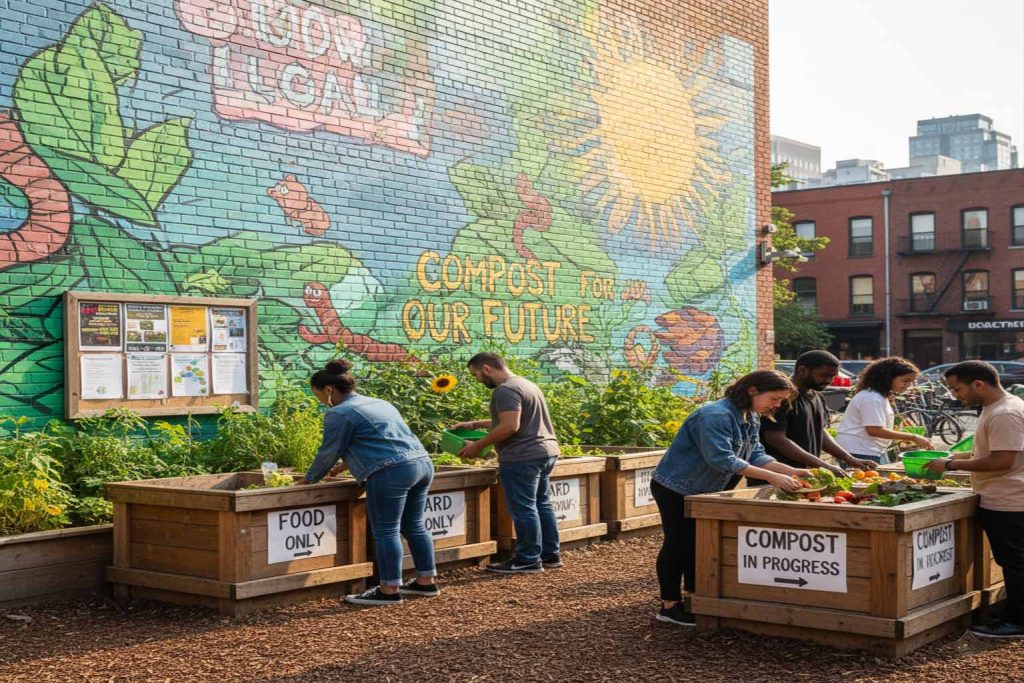Community-based learning projects are educational initiatives that integrate real-world community issues into the learning process. These projects, which can be implemented in schools, colleges, or through informal educational programs, offer numerous benefits to students and communities alike. Here’s an overview of how these projects positively impact participants and their surroundings:
1. Enhanced Practical Learning
Real-World Application: Community-based learning projects allow students to apply theoretical knowledge to real-world problems. This practical application reinforces their learning and helps them understand the relevance of their studies.
Skill Development: Students develop a range of skills, including problem-solving, critical thinking, communication, and teamwork. These skills are essential for both academic success and future careers. Participating in adult education programs can further enhance these skills by providing more advanced and specialized knowledge.
2. Increased Engagement and Motivation
Active Participation: By working on projects that address real community issues, students become more engaged and motivated. They see the direct impact of their efforts, which can boost their enthusiasm for learning.
Personal Investment: Students are more likely to invest time and effort into projects that have a tangible outcome or benefit for their community. This personal connection can lead to a deeper commitment to their studies.
3. Strengthened Community Relationships
Building Partnerships: Community-based learning fosters partnerships between educational institutions and local organizations. These partnerships can enhance resources and support for both students and community members. For example, a project on how to create a community library requires collaboration with local businesses, government, and volunteers, strengthening community ties.
Addressing Community Needs: Projects often focus on addressing specific needs or challenges within the community, such as environmental issues, social justice, or public health. This can lead to meaningful improvements in the community’s well-being.
4. Development of Civic Responsibility
Fostering Citizenship: Students learn about their role as active citizens and the impact of their actions on society. This fosters a sense of civic responsibility and encourages them to contribute positively to their communities.
Understanding Social Issues: Engaging with real-world issues helps students gain a deeper understanding of social, economic, and environmental challenges. This awareness can lead to a lifelong commitment to social responsibility and advocacy.
5. Improved Academic Performance
Reinforcing Learning: Community-based projects often involve hands-on activities and experiential learning, which can reinforce academic concepts and improve comprehension.
Increased Retention: Students who participate in community-based learning are more likely to retain information and apply it effectively. The practical experience helps solidify their understanding of academic material.
6. Enhanced Collaboration and Teamwork
Working Together: Projects often require students to work in teams, which enhances their ability to collaborate effectively. Teamwork skills are crucial in both academic settings and professional environments.
Diverse Perspectives: Collaborating with community members and other students exposes participants to diverse perspectives and ideas. This can lead to innovative solutions and a broader understanding of the issues at hand.
7. Personal Growth and Development
Building Confidence: Successfully completing community-based projects can boost students’ self-confidence and sense of accomplishment. They see the impact of their work and gain pride in their contributions.
Developing Leadership Skills: Many projects involve leadership roles, such as project coordinators or team leaders. This provides students with opportunities to develop and refine their leadership skills.
8. Increased Awareness of Career Opportunities
Exposure to Various Fields: Community-based projects often involve professionals from different fields, giving students exposure to potential career paths and real-world applications of their studies.
Networking Opportunities: Students have the chance to network with community members, organizations, and professionals, which can lead to mentorship opportunities and career guidance.
Conclusion
Community-based learning projects offer a multitude of benefits, from enhancing academic engagement to fostering civic responsibility. By integrating real-world issues into the educational experience, these projects provide students with valuable skills and insights while contributing positively to their communities.






